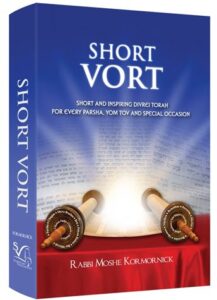As the story goes, Rav Chaim Volozhin (1749 – 1821), founder of the Volozhin Yeshiva, and the progenitor of the modern-day yeshiva, was once approached by a student who had left the yeshiva. The Haskalah movement, an outgrowth of the Enlightenment, was in full swing, and many young, impressionable yeshiva students were struck by the lure and culture of modern studies.
Upon meeting Rav Chaim, the former yeshiva student announced, “I have many questions.”
In turn, Rav Chaim asked him, “Did these questions come to you when you were in yeshiva or after you left?”
The boy responded, “What difference does it make? I have questions.”
Rav Chaim countered with an enigmatic answer “If these questions had troubled you before you left yeshiva, they are indeed genuine questions, and for questions I have answers. However, if these questions only began troubling you after you left yeshiva, then they aren’t questions; they are answers. For answers, I have no answers.”
Questions and answers define the Pesach seder. It is well-known that there are four verses in the Torah which instruct us to recount our nation’s exodus from Egypt to our children. Each of these instructions are worded slightly differently. The Pesach Haggadah links each of these instructions to the four sons: the chacham, the wise son, the rasha, the wicked son, tam, the simpleton, and eino yodeya lishoel, the son who does not know how to ask. A powerful lesson in Jewish education becomes apparent; we don’t educate our children uniformly. Every child can be different and therefore requires their own customized educational approach.
R’ Meir Simcha of Dvinsk (1843–1926) in his work on the Chumash, Meshech Chochma, points out that aside from the son who doesn’t ask, the instruction to the parent begins with the child asking a “shaileh”, an inquiry which the verse says he presents “laimor”, deliberately. The exception is the rasha. The rasha asks but the verse does not call his question a shaileh; nor is his question deliberate, “laimor”.
R’ Meir Simcha of Devinsk explains. The rasha is not looking for answers. His question lacks integrity. He doesn’t ask a shaileh, rather the verse tells us “When your son says, ‘what are these services you are engaged in?’” he implies that he is not looking for answers but rather he is searching for more fodder to feed his preconceived notions; he is looking to mock and scorn. We recognize, his question is not sincere. Therefore, we don’t give him a satisfactory answer. We respond,” you would never have been redeemed” As R’ Chaim taught, “for answers we have no answers.”
There is a lesson here for all of us. How often do we engage in open-minded debate where we welcome a change in our perspective? When we ask, are we asking sincerely, are we honestly seeking answers?

SHORT VORT, Rabbi Moshe Kormornick. Published by Adir Press. $9.99 in stores worldwide and online here
Whether you are looking for something meaningful on the Parsha, an uplifting thought for Yom Tov, or have been asked to speak at a Simcha – “Short Vort” is the book for you! With over 140 incredible short vorts packed with stories and valuable life messages, you will never be lost for something inspiring to say.
Rabbi Moshe Kormornick is a popular writer whose words are enjoyed by thousands of readers every week.










